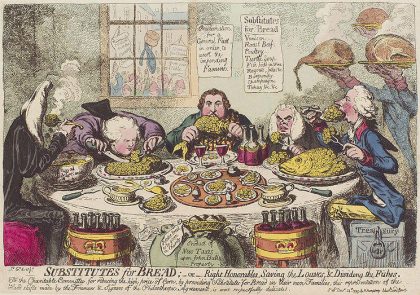
The Estates-General becomes factionalised, with many factions surfacing. But with no American revolution to inspire it there is no overall driving force. The Estates-General attempts to chart a course for the new France. The nobles and clergy in the Estates-General renounce their privileges in the hope that this will help to stop the unrest, and perhaps save their own lives too, but in the process undoing France's feudal structure. Filled with hope, and alarmed by food shortages an economic depression, common people across France pillage and burn the apparatus of government, killing many of the nobility and people associated with the government. The people rise up and storm the Bastille. With the Estates-General refusing to disband, the King is unable to act. There are so many of these that the situation has become so bad as to drive even the most disparate groups together, and it becomes clear that sweeping political and social reforms, far exceeding the object of its meeting, are expected from the Estates-General. Each of the three estates - clergy, nobility, and the third estate, or commons - presents its particular grievances to the Crown. King Louis XVI calls an Estates-General to gain the country's consent to a general fiscal reform. They refuse in an effort to protect their economic privileges. The French Director-General of Finances, Charles Alexandre de Calonne, calls an Assembly of Notables, hoping to avert national bankruptcy by inducing the privileged classes to share in the financial burden.

In 1798 the government's coffers are empty, and there is a bad harvest. French America and Canada suffered from under-funding. This leads to increased taxation, poverty and unrest in France, and therefore repression and harsh punishments. This is not helped by the effort involved in administering the large areas of Australia, Canada and Louisiana and the general excesses of the French crown and government.

Although they have had good trade with China, France still has problems with its rising national debt and with unrest in the country caused by the high level of taxation on the productive classes, and the unwillingness of the privileged classes to sacrifice any of their perks to help the county.


 0 kommentar(er)
0 kommentar(er)
